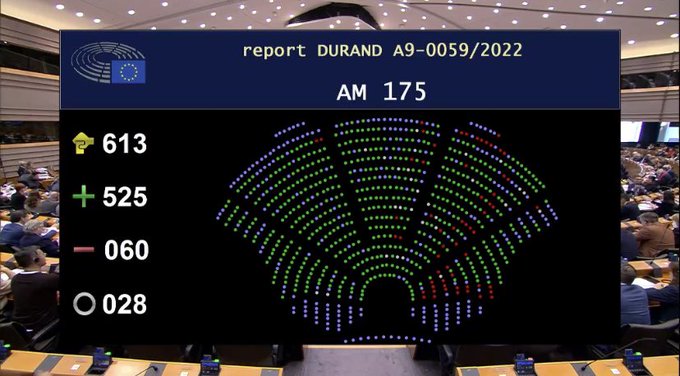Last January 16th, SeaBirdthe benchmark consulting partner for the insurance and banking professions, became a company with a mission. A further commitment for a company that has already broken new ground in terms of governance, with the creation of a shareholder Foundation "SeaBird Impact" in 2019. Interview with Cyrille VuCEO of SeaBird Impact, who is determined to change the world around us by embodying a more inclusive and sustainable form of capitalism.

Interview
1/ Hello Cyrille. Can you tell us about the trigger that initially led you to radically change Seabird's governance and create a shareholder foundation 4 years ago?
At the end of 2018, the founding partner asked to leave with exorbitant demands, even though he had been a sleeping partner for 4 years and had therefore not had an operational role for a long time. At the time, SeaBird was experiencing hypergrowth, with sales having increased tenfold in ten years. At this point, I ask myself what merits he has that justify earning so much money in such a short space of time. This leads me to a mirror reflection: what about me, soon to be the company's majority shareholder, justifies my capturing so much value?
In fact, I've always wondered about the origin of inequalities among men, and about the meaning of existence too. I think I was quite convinced by Rousseau. The shareholder conflict also raised questions about merit and meritocracy. And here, without being a specialist, it's rather Bourdieu who inspired me: the merits of some and others become relative if we consider the original inequality of an individual's economic, social, cultural but also genetic capital. At the same time, I've also developed a very strong ecological conscience and, more broadly, an awareness of the unprecedented contemporary situation for mankind: the climatic challenges, but also demographic, social, technological...
All these reflections, both existential and very concrete, have led me to consider that I'm not really the owner of SeaBird. It's a consulting company: there are no patents or factories, the value, more than in any other industry, lies in men and women... I can't consider myself the owner of this company in the same way as I own an inert material like an apartment.
My conclusion was quite clear: wealth must be shared. Every holder of power (economic, intellectual, political, artistic, influential...) has an eminent responsibility to put his or her wealth into action for the common good.
2/ In concrete terms, can you describe this original form of governance between the company and its shareholder foundation?
We have built a consulting ecosystem with a shareholder Foundation (with legal status as an "Endowment Fund") whose capital footprint is significant and whose business sector is aligned with the company's corporate name. The combination of these two features is what makes it so original. While many entrepreneurs make a clear distinction between business and philanthropy, and may have built their wealth on a model that damages nature or human beings, only to "give back" by setting up a foundation (usually not a shareholder) dedicated to repairing the world and human beings... Unfortunately, I don't think this is enough, as economic activity is then dissociated from the common good.
We wanted to explore the reconciliation between the profit and non-profit sectors, between economics and philanthropy, between meaning and performance. It seems to me that the future lies in these hybrid models, which don't hinder the development of companies, but on the contrary encourage it, since the positive impact generated is all the stronger for it!
To do this, I divested myself and gave 23% of the shares in the SeaBird Group to the shareholder Foundation (the SeaBird Impact Endowment Fund). This is an innovative governance model: a shareholder Foundation holds all or part of the capital of a private company. Part of the profits generated by SeaBird are used to operate and finance the company's philanthropic activities.
SeaBird Impact conducts public interest projects by promoting and developing initiatives with a positive social and environmental impact for players in the insurance sector. To reinforce the virtuous circularity between our businesses and our positive impact, our programs are embedded in the insurance and finance sectors.
Our mission is to develop and support public-interest projects in the service of inclusive and sustainable insurance, through three complementary axes: producing studies and supporting research dedicated to integrating social, technological and environmental challenges into evaluation standards, reinforcing the inclusion of socially, territorially and culturally diverse populations, and supporting impact entrepreneurship. Our employees are involved in these initiatives through a skills sponsorship program.
I also set up an employee shareholding plan, opening up the Group's capital to all employees with at least 3 months' seniority. Together with the company's associated managers and directors, this employee shareholding fund now owns over 16% of the Group's capital, and three-quarters of our employees are now shareholders in our company. Employees also benefit from a profit-sharing plan.
Sharing is one of our five values, and as you can see, it gives concrete form to our governance model. We are building a business model that is both redistributive and sustainable.
3/ On January 16, SeaBird also became a company with a mission. Why did you choose to "add" this quality to the existing system?
To go one step further in our day-to-day impact, and not leave it to the SeaBird Foundation. By becoming a company with a mission, we want to go one step further and reinforce what has already been initiated with the SeaBird Impact Foundation. We want to give ourselves the means to act even more decisively, with humility but determination. To bring the activities of the for-profit sector into line with those of the not-for-profit sector as far as possible.
Our purpose is to "Place the development of human potential at the heart of an inclusive and sustainable business model". Our associated statutory commitments are :
- Supporting the ecological and social transition of the Insurance/Banking sector.
- Taking care of people, nurturing the potential of each and every one and fostering the development of a committed team.
- Share value creation and decision-making fairly and responsibly.
To make them concrete, we have broken them down into 8 operational objectives and 34 actions, the first of which we are reserving for our employees and our ecosystem, and which will be unveiled over the coming weeks.
I can, however, give you an example of the objective of better value sharing: even before we became a company with a mission, we were already on the way, with the introduction of the employee stock ownership fund (FCPE salarié) in particular.
4/ Do these innovations in terms of governance help to meet the environmental, social and political challenges facing the insurance industry? If so, how?
Yes, they do, but in a generic way and not at this stage specifically for the insurance sector. Because the root of the problems we face are not the ones that are being pushed down our throats. Global warming is the tree that hides the forest. The root of the problem is our relationship with nature. It's our inability to overcome our initial predatory instincts. It's fundamentally about our inability to share value, to share power. Between all the stakeholders, in the forefront of which are now the planet, nature and future generations.
However, our consulting ecosystem is involved in both for-profit and not-for-profit activities in the insurance sector, helping it to transform and position itself to meet the challenges of 2050. But our actions, as a new kind of consulting ecosystem, are still young and modest. We do, however, have a number of projects, notably within the Foundation, but also within the trading company, which will enable the SeaBird ecosystem to make an increasingly significant contribution in the future to supporting the sector in the transition of our societies.
Within the foundation, we aim to incubate or support impact startups, notably through our partnership with Finance4tomorrow, which recently became the Institut de la Finance Durable, and to conduct a forward-looking study on insurance in a post-crisis world. In the commercial sphere, we have designed or will be designing offers to support the transformation from CFO to Chief Value Officer, SRI offers and Climate Risk offers...
5/ How can entrepreneurial logic coexist with these governance mechanisms?
That's what it's all about. How can we maintain an entrepreneurial culture, a sense of innovation and impact on a day-to-day basis, a form of development that gives pride of place to the long term versus the short term?
By thinking about agile governance mechanisms that leave plenty of room for freedom, intrapreneurship and innovation, without jeopardizing the inclusive, sustainable project. I don't have all the answers. It's what we're trying to build, in a slightly utopian way, but what an adventure!
The G-factor of ESG criteria becomes crucial for transformations with impact! WEMEAN supports you in the 4 Cs of Governance: Criteria, Committees, Cultures, Communications.


